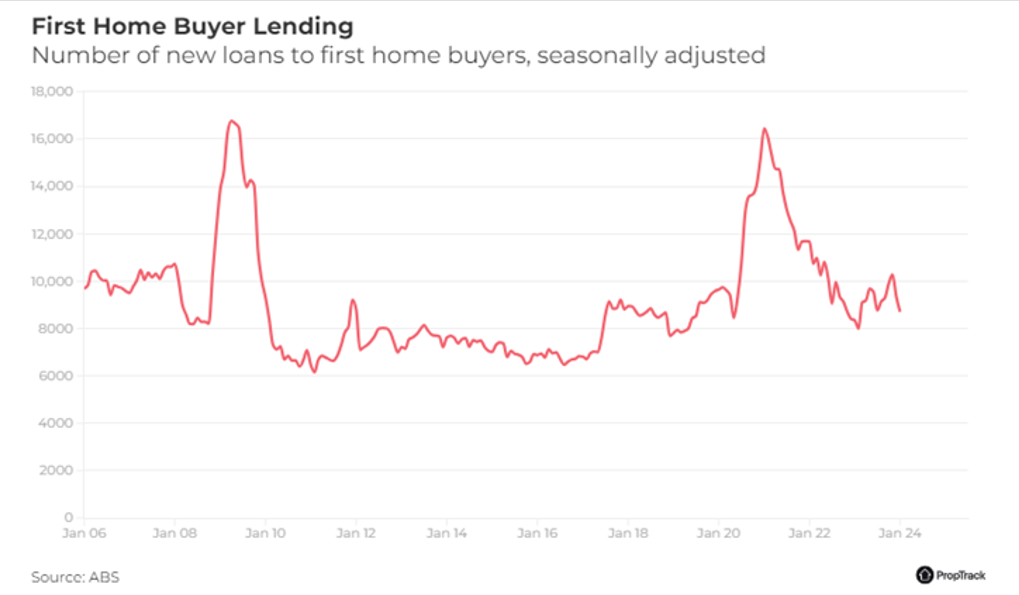PropTrack economist feedback on the most recent dip in new lending

Current ABS information revealed an surprising 3.9% drop in new housing mortgage commitments for January 2024, following a 4.1% lower in December.
Particularly, owner-occupier mortgage commitments noticed a extra vital fall of 4.6% month-on-month, with investor loans lowering by 2.6%. This downturn stands in stark distinction to the noticed uplift in residence value development and public sale exercise within the first two months of 2024.
The ABS’ finance head instructed the decline would possibly point out lenders’ operational enhancements and sooner mortgage processing occasions.

Market resilience amid affordability challenges
Regardless of the month-to-month decreases, a broader perspective revealed a resilient market, with new housing lending up 8.5% in comparison with the identical interval final 12 months. This indicated a sustained uplift in housing market exercise all through 2023, difficult the forecasts of a broader downturn.
Lending to first-home consumers, though experiencing a 6.9% decline in January, demonstrated a 4.4% improve year-on-year. That is noteworthy on condition that “affordability [has sunk] to its worst stage in at the very least three many years,” but first-home purchaser exercise has “remained above its long-term common over the previous quarter,” in line with Eleanor Creagh (pictured above), PropTrack senior economist.

Rising housing provide to satisfy demand
The resilience of residence costs to the heightened rate of interest atmosphere and deteriorating affordability, with costs accelerating after a slowdown on the finish of 2023, is exceptional.
The market has been buoyed by a number of components, together with “inhabitants development, tight rental markets, resilient labour market circumstances and residential fairness beneficial properties,” alongside “steady rate of interest atmosphere and expectations that rates of interest will fall within the second half of 2024,” Creagh mentioned.
This has additionally led to a rise in investor exercise, attracted by robust development in rents and rising property costs.
Rental markets, nonetheless, continued to pose vital challenges for renters, with emptiness charges remaining low and rents rising at double-digit charges in lots of capitals. 
This robust state of affairs has “doubtless incentivised some first-home consumers to buy their very own residence before they in any other case would have,” as proudly owning gives “the safety of proudly owning their very own residence and certainty of month-to-month prices,” Creagh mentioned.
Addressing the acute scarcity in rental inventory stays essential, with the federal authorities aiming to construct 1.2 million new houses by 2029. But, challenges corresponding to declining constructing approvals, excessive building prices, and labour shortages hinder progress in direction of this purpose.
“To satisfy that 1.2 million purpose, the tempo of constructing wants to extend from the place it at present stands,” Creagh mentioned, emphasising the necessity for a big acceleration in building efforts to alleviate market pressures.
Prospects of rate of interest reductions and market stability
With rental markets anticipated to stay tight and mortgage charges stabilising, the prospect of rate of interest reductions later within the 12 months may additional stimulate demand amongst first-home consumers and buyers, underscoring the significance of accelerating housing provide to take care of market equilibrium and sustainability, PropTrack reported.
Get the most popular and freshest mortgage information delivered proper into your inbox. Subscribe now to our FREE day by day e-newsletter.
Sustain with the most recent information and occasions
Be a part of our mailing listing, it’s free!



